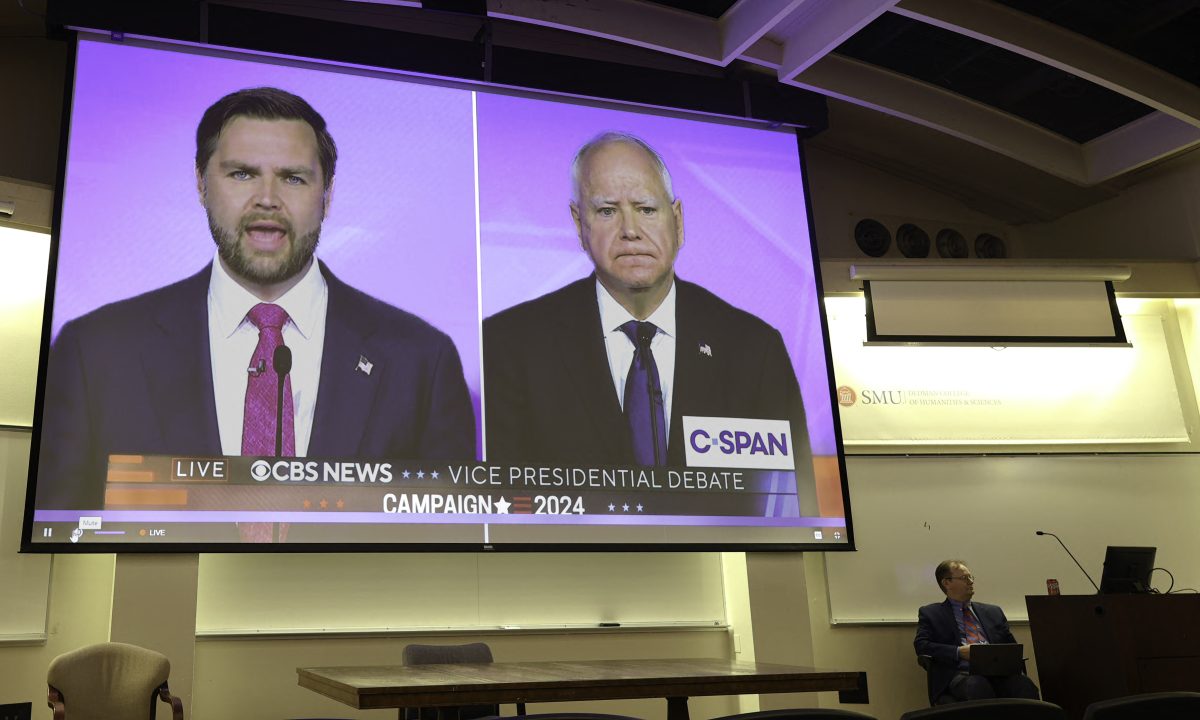Gubernatorial Race
To encourage voting and help students make educated choices, Ed Board has written editorials on the two major-party candidates running for the governorship of Texas. As with any election, Ed Board asks that you examine the candidates and their platforms carefully in order to make an educated vote. Don?t forget to go to the polls!
Republican: Rick Perry
When Rick Perry inherited the office of Texas governor, he was faced with three huge obstacles – filling the shoes of George W. Bush, earning the trust of an electorate after the departure of a popular politician and trying to conduct the business of his office in a not-quite-complete term.
Some may criticize what Perry has done during his term as “obstructionism” and “political posturing.” But at least Perry has a record, which is more than can be said for Tony Sanchez. Perry can pledge support to Texas education and healthcare reform because he has dealt with both issues before, as governor and lieutenant governor. The best attribute Sanchez has is oil money, which he has had no remorse in flaunting during his time on the campaign trail – an amount close to $64 million.
Perry is committed to improving public and higher education in Texas. While some may complain that Perry opposed ethical guidelines for the Texas state school board, his budgets massively increased Texas school funding. As lieutenant governor, Perry worked with Texas legislature for a school funding increase of $5.5 billion.
Much of Perry’s campaign platform concentrates on educational issues. He plans to provide funding for programs that prepare students who would be the “first generation” in their family to attend college. He plans to allocate more money to federal and state college work study programs, and use technology to increase long distance education.
Another complaint against Perry is his veto of a law requiring insurance companies to make payments to doctors. However, he has been a champion of health care, supporting a 1999 increase in appropriations. His budgets strengthened the Texas Medicaid Program, and supported the fraud-preventing Medicaid Managed Care. He supported the creation of the Children’s Health Insurance Program and saved the state of Texas $13 million by creating a bulk-purchasing program for pharmaceuticals.
Perry plans to continue his crusade for Texas health upon re-election into office. Texas has the second highest rate of uninsured in the country and the highest homeowner’s insurance rates, with more than a third of its total counties medically under served. Perry plans to decrease the stranglehold companies have on Texas insurance policies, lowering homeowners’ rates. He also plans to make it easier for small business employees to get insurance, expanding rural health care options and the availability of pharmaceuticals for senior citizens.
There are plenty of mysteries about both Tony Sanchez and his over-generalized platform. Rick Perry has proven, both through his time in office and his campaign platform, that he will be an admirable successor to George Bush as Texas governor. The only thing Tony Sanchez has proven is that he’d rather spend his time and money attacking Perry instead of creating a viable plan for Texas.
Democrat: Tony Sanchez
What can you say about Tony Sanchez? Well, for starters, he’s not Rick Perry, and that just might be enough. After inheriting the governor’s mansion when George W. Bush packed his bags for Washington, D.C., Governor Perry has presided over the slowing of the Texas economy, a rancorous redistricting process, and the vetoing of more bills in one day than had ever before been vetoed in an entire Texas legislative session.
While legislative restraint is a laudable goal, using the veto stamp to create political gravitas in an attempt to fill the shoes of a popular predecessor is not. Many worthwhile bills have fallen to Perry’s executive whims, including proposed laws that would have banned the deplorable practice of executing the mentally retarded, required prompt payments to doctors by insurance companies and established ethical guidelines for the state’s powerful school board.
Perry’s record in Austin is one of obstructionism, pandering (particularly to the well-heeled interests who finance his campaigns) and political posturing that probably proceeds from a sense of inadequacy – a well-deserved sense at that. Despite his salesman like skills, great hair and winning smile, Perry has never escaped the shadow of his predecessors, Bob Bullock and George W. Bush. The best argument against Perry is his record.
And the best argument for Sanchez is his lack of one. Sanchez, a successful oilman and entrepreneur, approaches the governor’s mansion from the enviable position of outsider – and better yet, an outsider wealthy enough to not need to heap adulation on cash-rich special interest groups. Sanchez offers a platform of positions that not only sit well with common Texas sensibilities (support for the death penalty and concealed handguns), but also includes calls for needed reforms (such as a ban on the execution of the retarded and revised benefits for teachers) and the kind of creative thinking that can come only from an outsider (as evidenced by his plans to turn the budget upside down and inside out, without sacred cows and to clear away red tape by merging the Public Utilities and Railroad Commissions).
The question for Texans to ask themselves today, before they vote, is whether the state is better off than it was when Perry took the reigns in December 2000. And if not, whether two more years of Perry’s pandering to campaign contributors and stonewalling on issues like execution reform is the way to solve the state’s problem. If the answer to both those questions is “no,” then perhaps its time to give an outsider a chance, and pull your election lever for Democrat Tony Sanchez.








